An estimated 1-million people flooded the streets of Hong Kong on Sunday (June 9) in a massive demonstration against what the Hongkies called an “Evil Law”. The controversial extradition law would allow suspects to be sent or extradited from Hong Kong to mainland China for trial. Critics say the new law will undermine the integrity of the city’s legal system.
By Wednesday, tens of thousands of defiant demonstrators surrounded the Legislative Council building. They hoped the move will prevent lawmakers from meeting and stop the law from becoming a reality. When some protesters charged the police in an attempt to enter the building, all hell breaks loose as authorities opened fire with rubber bullets and more than 150 canisters of tear gas.
After a day of violent clashes between protesters and the police, Andrew Leung, the president of Hong Kong’s legislature on Thursday agreed to delay by at least two days of the legislative debate. However, Hong Kong Chief Executive – Carrie Lam – the champion of the extradition law, has compared the protesters to spoiled children and vowed to keep fighting for the extradition law.
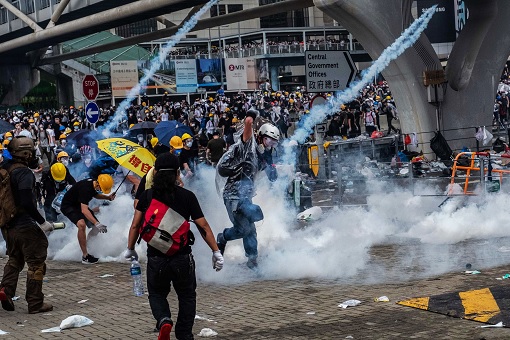
Video recordings of Wednesday’s protests in which the police appear to be using excessive force have been circulated widely across social media. One video circulated by the Hong Kong-based newspaper Apple Daily apparently showed a protester who had already fallen to the ground being beaten by a group of helmet-clad riot police wielding batons and shields.
Protests, however, continued on Thursday as several thousand protesters demonstrated in the streets – undeterred by the tear gas and rubber bullets police fired at them a day earlier. A former British colony, Hong Kong returned to Chinese sovereignty in 1997 under a model called “One Country, Two Systems,” which accorded Hong Kong its own legal, political and economic systems until 2047.
Interestingly, the latest proposal was mooted and justified after a gruesome criminal case involving a teenage Hong Konger, Chan Tong-kai, who murdered his pregnant 20-year-old girlfriend while holidaying in Taiwan in February last year. He dumped her body in in a suitcase before fleeing back to Hong Kong. Taiwanese authorities have sought help from Hong Kong to extradite the killer.
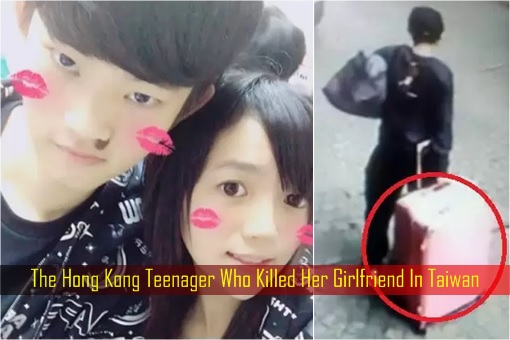
Chan has since admitted to the killing in a Hong Kong court, but because Hong Kong has no pre-existing extradition agreement with Taiwan, he cannot be sent to face trial for murder there. At the same time, since Hong Kong courts have no jurisdiction over crimes committed in Taiwan, Mr Chan can’t be tried for murder here either – something which the Hong Kong government said is an example of a “major loophole”.
Hence, a proposed amendments to the extradition law will plug this loophole and ensure that Hong Kong does not become a haven for fugitives. However, thanks to China’s poor human rights record, many critics argued that the change of law would allow for “legalized kidnapping” – a reference to the 2015 abduction of Hong Kong booksellers by Chinese agents.
Amusingly, despite the fact that Hong Kong has extradition agreements with 20 countries, including the U.K., Australia and the U.S., the former British colony has no such agreement with mainland China. This probably explains why Malaysian most wanted fugitive – Jho Low – could not be extradited to mainland China from Hong Kong so that he could be handed over to Malaysia.
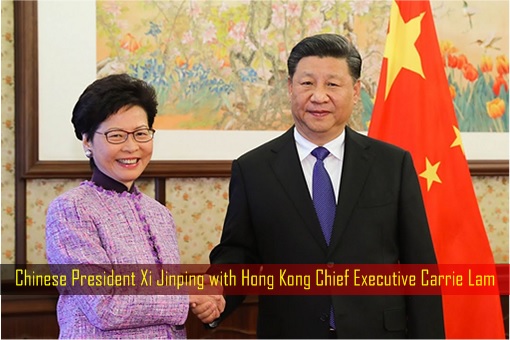
While the protesters continue to fight against the “evil law”, the mass demonstration has already had an impact on business in the city. Hong Kong authorities have already shut down government offices in the city’s financial district for the rest of the week. Major international banks – Standard Chartered, Bank of China and DBS – had suspended branch services until further notice.
Even though the extradition law has been fine tuned to exclude commercial crimes such as those related to bankruptcy, tax, and securities and futures trading, after intense lobbying from the local business sector who argued that the inclusion of these would drive global businesses away from Hong Kong, the American Chamber of Commerce in Hong Kong was still concerned about the proposed law.
The chamber argued that the controversial law will reduce the appeal of Hong Kong to international companies considering Hong Kong as a base for regional operations. It also reminded the Hong Kong government, and Beijing for that matter, that Hong Kong’s international reputation for the rule of law is its priceless treasure.
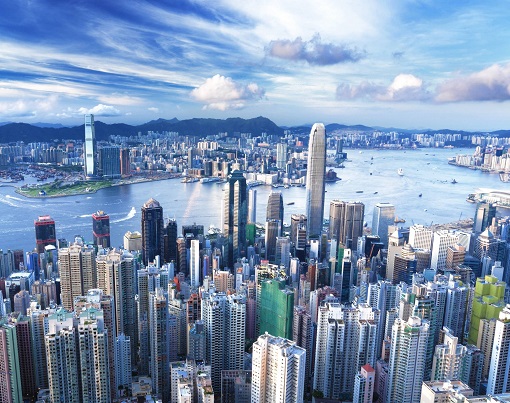
Ho-Fung Hung, a professor in political economy at Johns Hopkins University, told CNBC that an amendment to the extradition policy could jeopardize not only the territory’s reputation as a financial center but also its special economic status with Washington. Hong Kong’s special trading status with the U.S., based on the US-Hong Kong Policy Act, could be affected.
Similarly, the European Union shared not only many of the concerns raised by citizens of Hong Kong, it also highlighted the consequences on the local business landscape – “This is a sensitive issue, with potentially far-reaching consequences for Hong Kong and its people, for the EU and foreign citizens, as well as for business confidence in Hong Kong.”
If the law is passed, not only a person will be extradited to mainland China, the accused’s assets in Hong Kong can also be frozen and/or seized. Some of the 37 crimes for which anyone, including Hong Kong citizens and travellers passing through Hong Kong, could be extradited to mainland China include murder, money laundering, corruption and fraud.
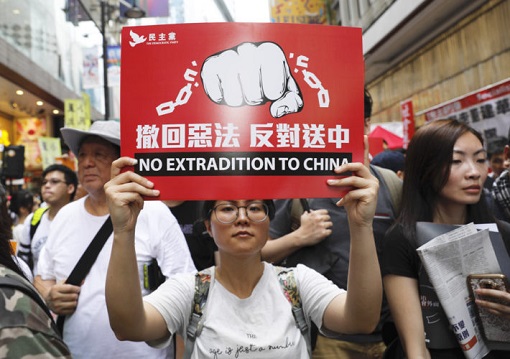
But chances are that Beijing couldn’t care less about the Hong Kong demonstrators, let alone the business community. Chief executive Carrie Lam will eventually bulldoze the so-called “evil law” as it would be part of her key performance index. After all, the contribution of Hong Kong to China’s GDP has dropped from 30% in 1997 to just 2% today.
Other Articles That May Interest You …
- Here’s Why Fugitive Jho Low Could Finally Be Detained – But It Would Spell Trouble For Ex-PM Najib Razak
- After Banning Hong Kong National Party, China Warns Foreign Countries – Mind Your Own Business!
- A New Record Of Online Love Scam – This Hong Kong Businesswoman Lost HK$180 Million
- Revealed!! – Britain’s Evil Plan In Denying Hong Kong People Nationality Before 1997 Handover
- China vs Hong Kong Rivalry – These 22 “Naughty” Graphics Tell All
- Here’s How Hong Kong Chief, CY Leung, Uses Gangster & Police To Break Protesters
- Exposed! Food Scandal – Hong Kong, Macau & Taiwan Use “Gutter Oil”

|
|
June 14th, 2019 by financetwitter
|


|

|

|

|

|

|




























Comments
Add your comment now.
Leave a Reply